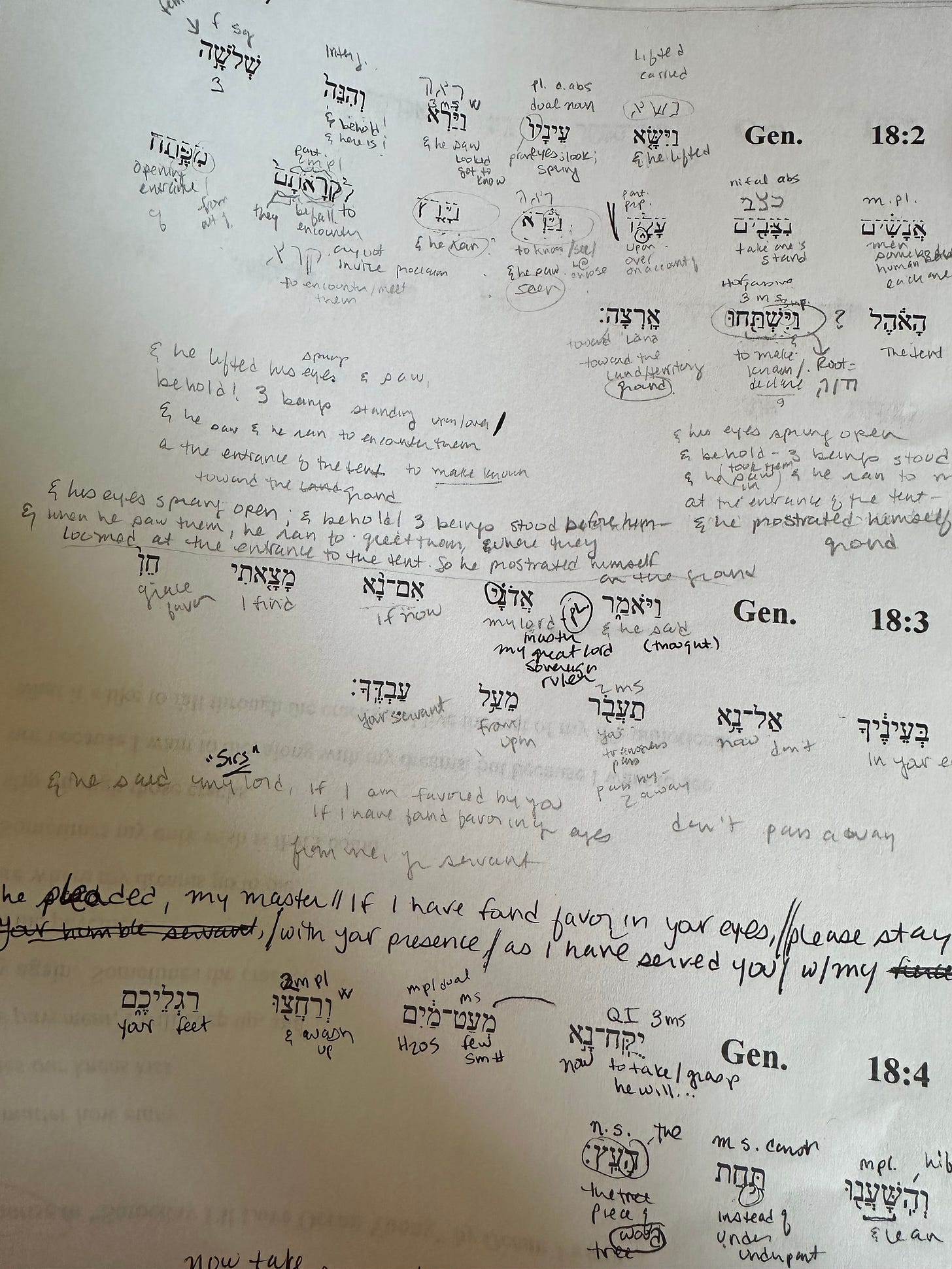A Japanese word for what it feels like to translate biblical Hebrew
Welcome back to 'The Life of H: Sarah, Reimagined,' where lately I've been using my poet's toolbox (and whatever else I've got) to translate a bible story
Watching the Wim Wenders movie Perfect Days, I learned a Japanese vocabulary word for a wordless phenomenon that expresses how I feel when I attempt to translate biblical Hebrew into English.
Perfect Days, a meditative film about a Japanese man who cleans public toilets, is based on a classic trope:
The humble person whose simplicity might be mistaken for a lack of sophistication, but who is revealed to be reverential and wise.
It’s a storyline I can’t get enough of. And Wenders delivers it with a subtle twist that makes the old story fresh and new.
One of the great pleasures of watching the movie was learning this Japanese word: Komorebi.

In four syllables this word holds the satisfying contradiction of a poem: It refers to the way light filters through foliage to create shadows, and it communicates the timeless beauty of moments that don’t last.
I’ll get to how this relates to my translation project in a minute … but first here’s an invitation for you:
Tune into Komorebi Moments
This week, use your camera, or your pen, to capture shadows dancing beneath a tree, or the way light plays across foliage.

Translating words that won’t stay still
For me, translating biblical Hebrew into English feels much like trying to describe a shadow before the sun shifts or the breeze blows and alters what I’m seeing.
Trying to pin down prose written in a highly compressed language, where verb tense can change with the placement of a dot inside a consonant, and in which one noun might have five or six disparate meanings, is a mixture of frustration and joy.
It’s like attempting to describe a komorebi moment in prosaic language.
It’s also an irresistible challenge for me, as a poet and a seeker, who wants to inhabit an ancient story in the present moment.
You can read more about my translation project here.
Notes on shade trees, plurality, singularity
Below you’ll find my latest attempt to hold onto a flicker of meaning as the light of nuance and the fleeting nature of time shift and shift again, revealing new perspectives with each movement of the air. But first, I want to share some news with you.
Speaking of light filtering through foliage, this week’s translation highlights a flickering moment in the sacred Grove of Mamre, where Sarah pitched her tent.
If you encounter a paywall it is because if I share these translations with all 2,000-plus of my readers, it will be more difficult to get them published elsewhere later on. If you decide to become a paid subscriber, not only will you get a free, signed copy of one of my already-published books, you’ll also have access to what is essentially a book-in-progress, as it unfolds here.
Keep reading with a 7-day free trial
Subscribe to The Life of H to keep reading this post and get 7 days of free access to the full post archives.



